第59章 NOTES(6)
"Traite du Corail": "I made the coral bloom in vases full of sea-water, and I noticed that what we believe to be the flower of this so-called plant was in reality only an insect similar to a little nettle or polype. I had the pleasure to see the paws or feet of this nettle move, and having placed the vase full of water in which the coral was, near the fire, at a moderate heat, all the little insects expanded, the nettle stretched out its feet and formed what M. de Marsigli and I had taken for the petals of the flower. The calyx of this so-called flower is the very body of the animal issued from its cell."[115]
Reaumur (1683-1757): a French physiologist and naturalist, best known as the inventor of the Reaumur thermometer. He was a member of the French Academy of Science.
[116]
Bishop Wilson: Thomas Wilson (1663-1755), bishop of the Isle of Man. Details of his life are given in the folio edition of his works (1782). An appreciation of his religious writings is given by Matthew Arnold in Culture and Anarchy. Bishop Wilson's words, "To make reason and the will of God prevail," are the theme of Arnold's essay, Sweetness and Light.
[117]
An eminent modern writer: Matthew Arnold (1822-1888), eldest son of Thomas Arnold, headmaster of Rugby; a distinguished critic and poet, and professor of poetry at Oxford. The allusion is to Arnold's essay, Sweetness and Light. The phrase, "sweetness and light," is one which Aesop uses in Swift's Battle of the Books to sum up the superiority of the ancients over the moderns. "As for us, the ancients, we are content, with the bee, to pretend to nothing of our own beyond our wings and our voice, that is to say, our flights and our language; for the rest, whatever we have got has been by infinite labor and search, and ranging through every corner of nature; the difference is, that instead of dirt and poison we have rather chose to fill our hives with honey and wax, thus furnishing mankind with the two noblest things, which are sweetness and light." Arnold's purpose in the essay is to define the cultured man as one who endeavors to make beauty and intelligence prevail everywhere.
[118]
Abbe Trembley (1700-1784): a Swiss naturalist. He wrote "Memoires pour servir a l'histoire d'un genre de polypes d'eau douce, a bras en forme de cornes."[119]
Bernard de Jussieu (1699-1776): a French botanist; founder of the natural classification of plants. He was superintendent of the Trianon Gardens.
[120]
Guettard (1715-1786): a French naturalist.
[121]
Monte Nuovo within the old crater of Somma: Monte Nuovo, a mountain west of Naples; Somma, a mountain north of Vesuvius which with its lofty, semicircular cliff encircles the active cone of Vesuvius.
[122]
Mauritius: an island in the Indian Ocean; Huxley visited the island when on the voyage with the Rattlesnake. He wrote to his mother of his visit: "This island is, you know, the scene of Saint Pierre's beautiful story of Paul and Virginia, over which I suppose most people have sentimentalized at one time or another of their lives.
Until we reached here I did not know that the tale was like the lady's improver--a fiction founded on fact, and that Paul and Virginia were at one time flesh and blood, and that their veritable dust was buried at Pamplemousses in a spot considered as one of the lions of the place, and visited as classic ground."[123]
Mr. Darwin's coral reefs: The Structure and Distribution of Coral Reefs, published in 1848.
[124]
Professor Jukes (1811-1869): an English geologist.
[125]
Mr. Dana (1813-1895): a well-known American geologist and mineralogist; a professor at Yale from 1845. He wrote a number of books among which is Coral and Coral Reefs.
[126]
Jurassic period: that part of the geological series which is older than the Cretaceous and newer than the Triassic; so called from the predominance of rocks of this age in the Jura Mountains. The three great divisions of fossiliferous rocks are called the Triassic, the Jurassic, and the Cretaceous.
REFERENCE BOOKS
The following reference books are suggested for a more complete treatment of various points in the text:--Andrews' History of England.
Green's Short History of the English People.
Traill's Social England.
Roger's A Student's History of Philosophy.
Royce's The Spirit of Modern Philosophy.
Huxley's Life and Letters.
Smalley's Mr. Huxley, in Scribner's Magazine for October, 1905.
Darwin's Life and Letters.
End